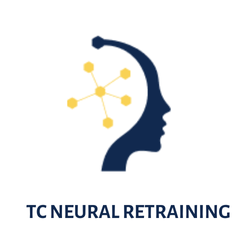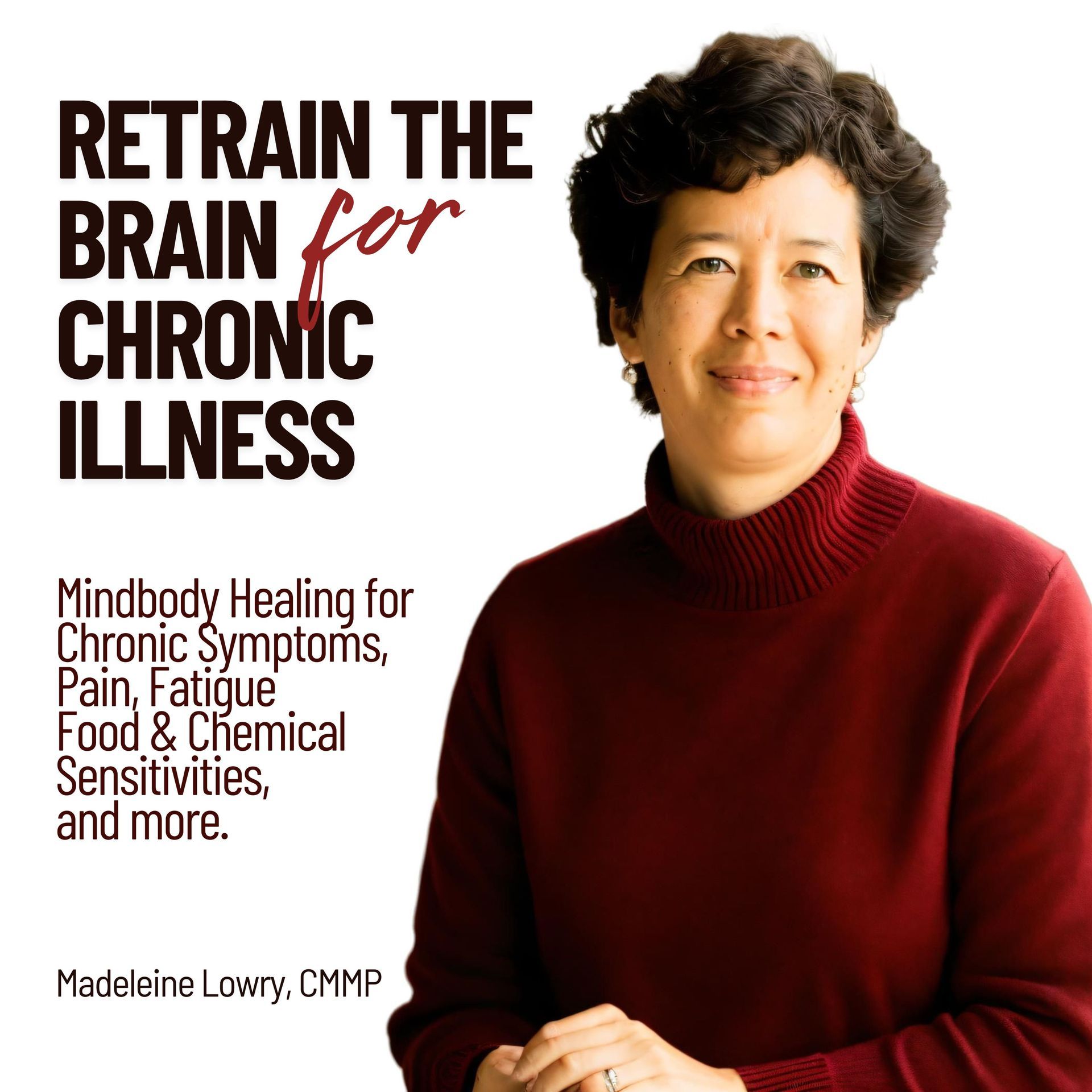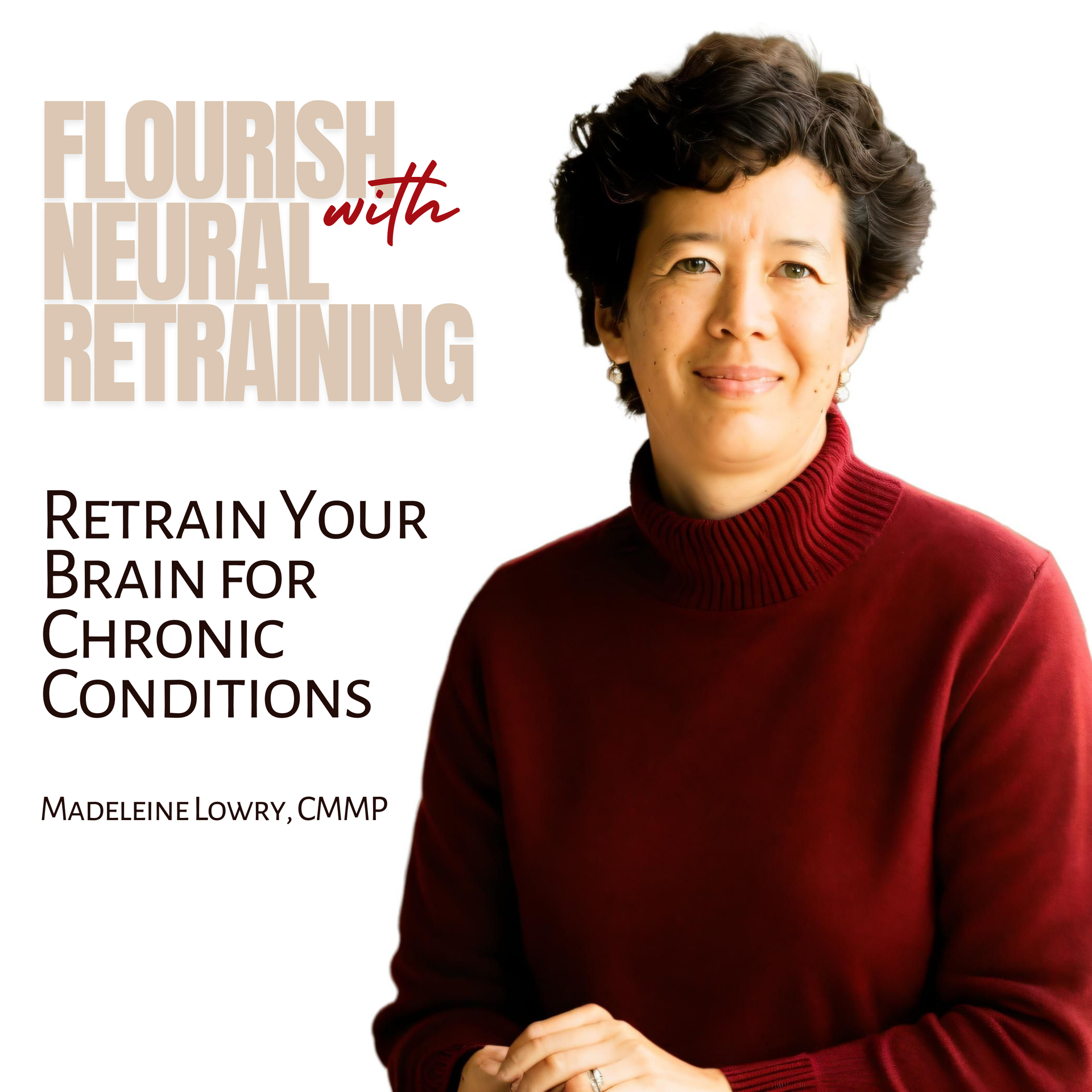MAP Method and Energy Medicine with Cilla Whatcott, PhD
Flourish with Neural Retraining Podcast, Episode 56 - A Listener's Guide
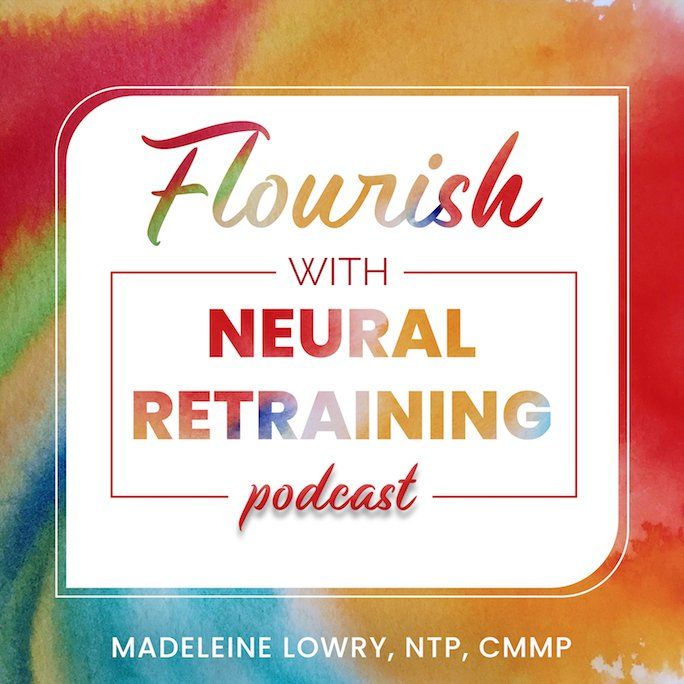
Listen to the podcast episode
In This Episode
- The MAP Method as an energy modality and complement to other allopathic and alternative treatments.
- Using the MAP Method for trauma healing and the role of trauma in chronic conditions.
- The role of client and practitioner in a MAP Session, and the client's experience of sessions.
- Applications of the MAP Method for fear, anxiety, PTSD, depression, phobias, and stress around cancer.
Show Notes
Join me for episode 56 where we talk with Cilla Whatcott, my client and Classical Homeopath, about the MAP Method and her experience with MAP sessions. Hear how she describes the impact it has on trauma and the role that trauma has in health. We discuss the MAP as an energy modality and applications for anxiety, PTSD, depression, fears and phobias.
In this episode we discuss:
- The impact of trauma on health.
- How Cilla’s baseline sense of anxiety was reduced through MAP sessions.
- How meditation practice makes it easier to access the MAP Method.
- How, during MAP sessions, the images from childhood and past life experiences are served up by the subconscious mind revealing trauma “bubbles” and beliefs.
- The experience of a MAP session and how the practitioner and the client work together.
- How it can take a few sessions to understand the flow and the benefits of MAP. Increased anxiety at first can be a sign of resistance.
- How treating trauma memories also allows us to identify and replace negative beliefs that are holding us back.
- How contributors can be very small things that don’t appear to others as a trauma, but it has more to do with the individual’s perception.
- How MAP Practitioners connect with the client’s subconscious mind to identify priorities.
- How we follow the thread of the topic throughout the session and the element of trust necessary.
- The importance of individualized medicine and how interest in it has grown, along with Energy Modalities.
- Why working with the mind is essential for chronic conditions.
- The positive results in reduction of fear and anxiety around cancer.
- How she knows when something big has happened, that traumas have been released. How we can reframe our experience of a traumatic event.
- How MAP is deceptively simple, yet the effects are deep. The instructions kick off a search in the subconscious mind.
- How people are layered and the emotions are the deepest layer. As we resolve layers of painful emotions, we start to see changes on mental, behavioral and physical levels.
- The concept of “Never well since…” as used in Homeopathy and MAP.
If you enjoyed this episode, don’t miss episode 33, MAP for Complex Chronic Conditions, where functional medicine practitioner, Cathy Moore, describes her experiences with the MAP Method and why she refers patients for sessions. To learn more about the MAP Method and how it works, visit mapforhealth.us, where you’ll also find our MAP Program offerings. Or, if you’d like to schedule a 60-minute Introductory MAP session please schedule online at MindReMAPforHealth.com
Moments from our conversation
How MAP helped with anxiety...
[5:42] I have a low level of anxiety that is running like a motor all the time. What I have found most distinctly, significantly, with the MAP Method is that the engine has gone down. That sense of anxiety has reduced. It’s subtle, but clear. I can find my equilibrium more quickly. I’m not waking with that sense of anxiety in the middle of the night. It’s been very positive in that regard.
What it feels like to uncover and release trauma...
[8:00] As you’re speaking and putting me into a meditative state, images start moving through my imagination and it takes me back to my childhood, to experiences I had. It’s almost like watching a rapid fire TV show. Those are the trigger points that are like bubbles that are holding trauma. And then you help me burst the bubble because you look at what that image caused me to believe– each time it’s triggered that belief pops up.
What's special about the client-practitioner connection in a MAP Session...
[9:30] What you’re doing is identifying where the trauma lies and where the triggers lie based on your sensing of the energy. So, you have this capability to really identify where to focus. And then you focus on that, and basically it’s just chatting between us. But it’s coming from a meditative state on my part and an empathic skill on your part. And those two things together become very effective.
It can take a few sessions to appreciate the power of MAP...
[11:00] Part of me was a little held back: What is this going to be? What’s going to happen? I almost stopped after the first few sessions, As I allowed myself to open up to it more, it definitely started moving forward and I feel like there’s been great results. I’ve tried a lot of modalities over the years and I really feel that addressing trauma is key.
How MAP sessions can relieve the anxiety and fear around cancer...
[23:00] In terms of treating cancer…A very important part of it is the mental state surrounding it–the fear, the anxiety. I feel that has definitely been impacted, so that’s a positive result.
The experience of observing the subconscious during a session...
[26:00] It’s like going through a database and different things are popping up and by the time we complete a session, I walk away with a feeling like, ‘Whoa, that was big! That was really big!’ And then it just settles into my body.
Connections and insights and the release of trauma during MAP sessions...
[27:00] I’m driving the bus. As you’re talking I’m rifling through a database of experiences and once I’ve done that, I can see how this relates to that. There’s a flood of emotion, or a realization and the bubble pops. That’s the mechanism where we identify something and it clearly gets dissipated.
Reflections
I really enjoyed having this conversation with Cilla. It was good to talk with her about the role of trauma in chronic health conditions. I also appreciated hearing how the homeopathic approach overlaps with my approach in MAP sessions, including understanding the stressors that were present in the months leading up to the onset or worsening of symptoms.
One of the more interesting comments Cilla made about the impact of MAP sessions is that she noticed that way her son managed his issues changed. We were doing sessions for her PTSD from the history of her's son's mental illness, and yet she observed changes in him. This is something I've seen in multiple situations--we do sessions for the parent and the child changes, or vice versa. Cilla's explanation, that we are all connected, is true. But, what I understand from doing this work is that when we can change our own beliefs and emotional responses, we show up differently, and this allows other people's behaviors to change.
I also appreciate what she had to say about needing a few sessions to be able to appreciate the power of the MAP Method. It is a subtle process, but also profound. It can take 2-3 sessions to understand the potential, and this is why I offer a
3-session introductory package.
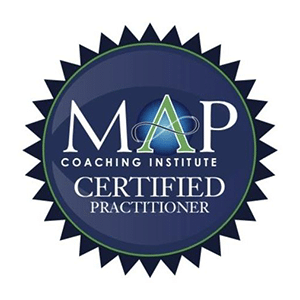

Madeleine Lowry, NTP, CMMP
Certfied MAP Method Practitioner
Madeleine specializes in neural retraining for chronic conditions. As a Nutritional Therapy Practitioner, she worked with many clients who were interested in eliminating allergies, sensitivities and intolerances. After learning a basic method and seeing its limitations, she trained in an advanced method of retraining the brain and now offers MAP sessions over Zoom and online self-paced programs for Anxiety/Depression, Sensitivities, Chronic Pain, Self-Healing, and COVID Long.
Related Posts

